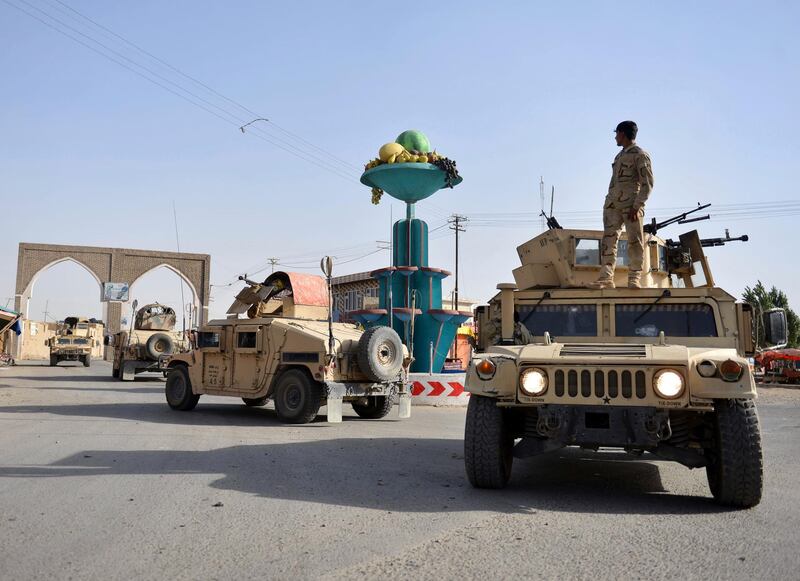Afghan special forces from the country’s intelligence agency announced the arrest four ISIS Khorasan (ISIS-K) logistics specialists posing as taxi drivers to ferry fighters and weapons around Kabul.
“They pretended to be taxi drivers and helped transport their fighters and their weapons in and out of Kabul,” an official in the National Directorate of Security told The National on condition of anonymity. “They were an important asset to Daesh and provided logistic support to the ISIS fighters in Kabul,” he added using the Arabic acronym for ISIS.
The suspects apprehended on Wednesday are believed to have been involved in several high profile attacks and “were also involved with recruiting new members in Kabul,” the NDS official said.
They were captured after a four-day operation from the Qargha district on the outskirts of Kabul city.
The detained men were identified as Shafiullah, Muhammad Rahim, Mansur al-Din and Javid and are believed to be from Kabul and Laghman provinces of Afghanistan.
During the arrest, officers recovered 10 kilograms of explosives, a yet to be loaded suicide vest and training manuals including eight volumes on bomb-making. Officers also uncovered a cache of military-grade weaponry including hand grenades, nine grenade launchers and 35 remote-controllers, all of which are often used in coordinated ISIS attacks.
ISIS-K activities in Afghanistan have increased considerably over the past year adding to the already deteriorating security situation in Afghanistan. The latest report by United Nations Assistance Mission in Afghanistan (UNAMA) documenting civilian casualties of the first half of this year showed a substantial increase in casualties caused by ISIS-K, especially in Kabul and Nangarhar provinces.
About 52 per cent of civilian casualties caused by suicide and complex attacks in Kabul were linked to ISIS-K. Meanwhile, the group claimed 15 attacks in 2018 that resulted in 595 civilian casualties.
These figures do not include the recent deadly classroom bombing in Kabul that claimed over 63 lives and injured over a hundred civilians, mostly students preparing for the university entrance exams.
The latest arrests are the second major breakthrough for Afghanistan’s overstrained security forces in the last week after the leader of the ISIS-K, Saad Arhabi, was killed in an airstrike in Nangarhar province on Saturday. Officials believe his removal will weaken ISIS-K operations in Afghanistan and Pakistan.
______________
Read more:
[ With stalemate on talks on the future of Afghanistan, who will steer a way forward? ]
[ ISIS leader in Afghanistan killed in strike, spy agency says ]
[ Rockets hit diplomatic area of Afghan capital as president gives Eid address ]





